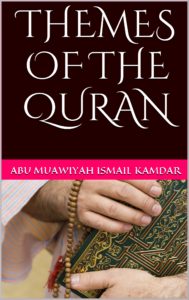
Surah Maryam
Surah Maryam: 4 Powerful Family Lessons
The 19th chapter of the Quran, Surah Maryam, is one of the most powerful Surahs in the Quran. With a strong focus on the prophets and their families, this Surah is full of amazing lessons for families.
Here are four important lessons from this story:
1. Miracles can happen
The opening story of Surah Maryam is about Prophet Zakaria (AS) and the miraculous birth of his son Yahya (AS). Prophet Zakaria (AS) prayed for a son and was granted one as a miracle at an old age. The lesson here is to never give up, and to never lose hope in Allah’s Mercy.
No matter what family problems you are facing, remain positive and optimistic. Continue to make dua to Allah for assistance. And never lose hope. Miracles happen all the time, we just need to stay strong.
2.Respect Your Elders Even When disagreeing
The third story of Surah Maryam focuses on Prophet Ibrahim (AS) and the Dawah he did to his father Azar. Prophet Ibrahim’s (AS) father was an idol maker. So he called him to Tawheed.
The main point to note in this passage is that no matter how astray his father was, Prophet Ibrahim (AS) continued to address him in the most respectful manner.
Too often, young Muslims speak to their elders very disrespectfully when trying to correct them. In doing so, they cause more harm than good. Remain respectful no matter what, as that is what Islam teaches.
3. Your family are a gift
In multiple places in Surah Maryam, Allah mentions a family member as a gift to another, even using the word ‘wahaba’ which means to gift. Prophet Musa (AS) was gifted with a brother Prophet Harun (AS). Prophet Ibrahim (AS) was gifted his sons and grandson. Maryam was gifted with Prophet Eesa (AS).
The lesson for us all here is that righteous family are a gift. Cherish them and thank Allah for them. Avoid conflict, and patch things up when you slip up. Do not allow the devil to cause problems between you and your family.
4. Righteousness isn’t guaranteed
After mentioning all of these prophets, Allah says, “And after them, there came a generation who abandoned prayers and followed their desires. So soon they will be thrown into Hellfire,” (Surah Maryam 19:59)
This verse should teach us a very important lesson. Because you are a good Muslim and striving to raise your children properly, you may think they will also become righteous. However, their righteousness (and the righteousness of future generations) is not guaranteed.
Your job is simply to show them the right way, teach them and to pray for them. Whether they choose the right way as adults or not is not something you control. This is the hardest lesson for many of us to swallow, and pray to Allah not to test us with offspring that go astray.
However, it is crucial to know this so that we can prepare ourselves to deal with the tests of life.
These are four important lessons related to family taken from Surah Maryam.
For more Tafseer lessons, check out our eBook: Themes of the Quran.






